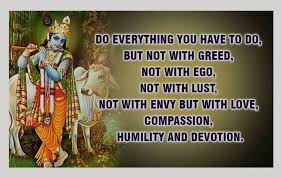Question: If a person is addicted to drinking alcohol, for example, this is a result of an individual’s past choices of association and action. With such an understanding, it seems that we are the doer, at least in terms of the choice being our doing. One might argue that it is ego to think that way.
I understand that each of our endeavors must have the blessing of the Great One to make it happen.
So, good or bad is it ok to say/understand that we do have a small part to play – making that choice?
Or are we saying that when good things happen be humble and don’t get attached to results, but when there is suffering then understand it was our choice?
Answer by Romapada Swami:
Of the two options you have offered within your question, the former understanding is correct and complete.
The second understanding is correct but incomplete.
Correction:
We should be humble in all circumstances of life. Humility is effective, ie. an emotion, but also objective, ie. an understanding of self based upon clear, specific and certain knowledge of Reality. Bhagavad-gita indicates that we choose (due to our minute free will), and that there are outcomes for our choices, which we do not independently determine or create. All endeavors, following a free will choice which we make, are fully dependent in their outcome upon the Will or Sanction of the Supreme (NOTE: this is an objective cause for humility!) We are entitled to our minute free will, and in turn to endeavor accordingly, but we are not entitled to claim ownership or enjoyership over the results of our endeavors. (See BG 2.47) This is true whether the present circumstances of our life, which represent the combined fruit of our past activities, are good or bad.







